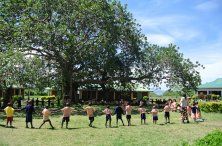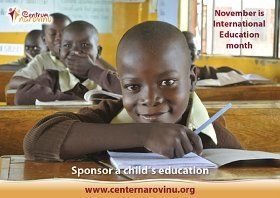The Island of Hope was created slowly and gradually, mainly due to the enthusiasm for the matter, volunteer work, and the generosity of small private donors. From the very start, the project has been created, developed, and led in cooperation with the local people. The broad local community have considered the project their own and they actively participate in it. The necessary finances are provided from many sources: contributions of little donors („adoptive parents“ of the Adoption of African Children project, fund-raising, gifts, proceeds of benefit events, sponsors), from grants of different European institutions (SlovakAid agency, humanitarian aid of the Czech Republic), and local donors (state institutions and private sector in Kenya).
In our opinion, those are the necessary conditions of a good, well-functioning, sustainable developing project. However, since our project focuses on providing high-quality education and health care for orphans and very poor families unable to financially cover even the basic operating costs of the services provided, a complete independence and sustainability is a very difficult matter. It is also necessary to invest in activities that would ensure regular income to the project´s budget. One of the possible means of reaching this goal is a gradual extension of the farm that would provide a complete feeding program for the children, while at the same time gaining income from selling the surplus in order to cover other costs.
Another way to reach sustainability is through renting technologies (tractors, cars, pumps), organising paid computer courses, providing paid health care to private companies (guests and employees of hotels for foreign tourists, for road building companies, etc.), establishing craft workrooms and little cooperatives, which would provide jobs for local people, while a part of the income would support the Island of Hope and the development of other activities gaining money for the project´s budget.
Plans for the future
- A computer lab– computer lessons for both children and teachers, using modern technologies and multimedia in teaching and learning
- A new library – a reading area with books for children and adults that also works as a public library where people can borrow books and the children from the orphanage and school are offered a wide range of afterschool activities
- New toilets using composting or bio-gas technologies
- A new dining room and an extended storehouse for food
- A playground for the youngest kids from the nursery school
- Fish farming cages directly in the lake
- Craft workshops for soapstone statuette production and decoration
- Boarding high school for 120 students on a new adjoining plot
























